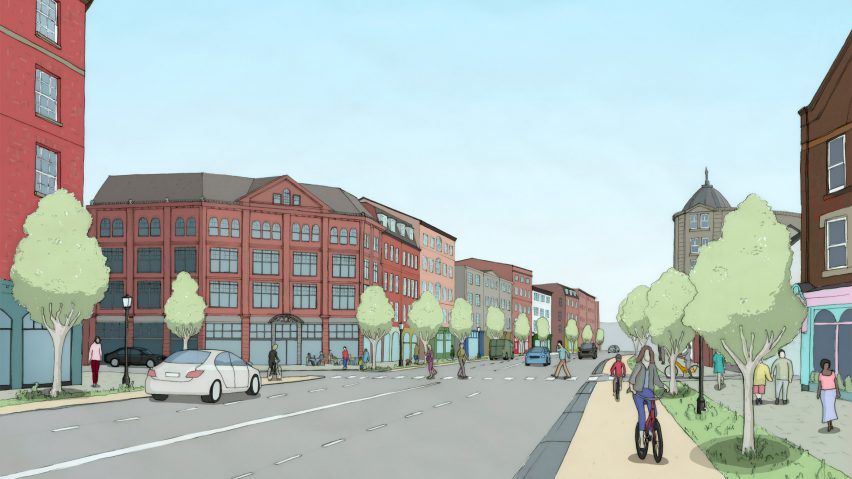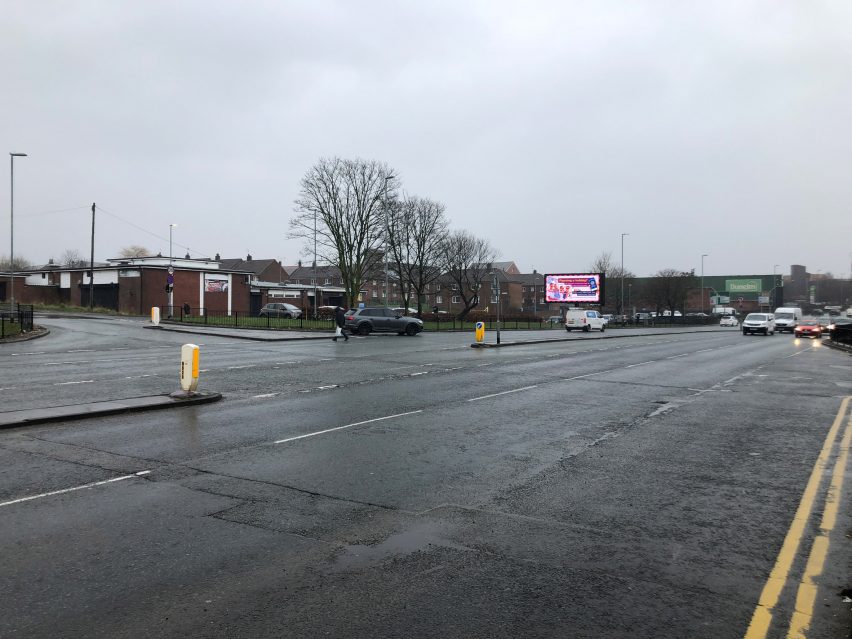
Create Streets proposes building housing on Britain's "needlessly wide" roads
Architecture task force Create Streets is calling for Britain's multi-lane roads to be replaced with homes to aid the housing crisis and protect the country's green belt.
In a paper titled Moving Towards Growth: Why it's time to build on Britain's roadbelt, the organisation argued that building on existing roads could create narrower streets with wide pavements that better serve local communities.
"We could create proud boulevards"
Making a direct comparison to Britain's green belts, Create Streets coined the term "roadbelt" to describe the stretches of wide roads that can be utilised in the proposal.
"We could create proud boulevards lined with beautiful, sustainably located new homes on space currently given over to needlessly, indeed counter-productively, wide roads," said Create Streets in the paper.
"Forget green belt, this is Britain's roadbelt and it's time to build on it."

Written by the organisation's deputy director David Milner, the paper states that Britain needs "human-scaled streets" with housing and amenities to improve local life.
"I felt there was a real crossover in this initiative between our crippling housing crisis, UK cities' poor productivity compared to its European neighbours (outside London) and our collective race to net zero – all are time-sensitive to solving many of the country's ills," Milner told Dezeen.
"This policy and the broader point of how we could better invest in transport and cities strikes me as a real win-win."
According to the group, several projects that will demonstrate the potential of building housing on roadsare in early design stages in Rochdale, Bedford and Southend-on-Sea.
The paper argued that Britain continues to widen roads in an attempt to decrease travel time, but speed efficiency has plateaued since the turn of the 21st century.
Additionally, unnecessary road building is often prompted by the placement of new schools, shops and leisure facilities. Building these facilities at the centre of new developments will minimise the need for new roads and encourage people to walk or cycle, saving the developer and council money, according to Create Streets.
The paper emphasised that building new roads will continue to be necessary, but they should be narrower and lined with homes and amenities that serve communities – "not single-minded soulless distributors and expressways".
"There are still many hidden levers holding these kinds of development back"
Create Streets is currently aiming to develop its proposals at a project in St Mary's Gate, Rochdale, where the group has discussed the idea of transforming a turning lane on a five-lane motorway into a row of housing with the local council.
If it goes ahead, the project will add up to 400 new homes while keeping four lanes of traffic untouched.
The paper also highlighted a project in Bedford as another example of "building on Britain's roadbelt". Here a large roundabout would be reduced into a "more humane" T-junction with added commercial space and 105 homes. The project secured planning permission this July.
Milner recognised there are many roadblocks to infrastructure change being enacted, including concerns that reducing road lanes will impede traffic flow.
"There are still many hidden levers holding these kinds of development back, primarily around traffic modelling and the need to move towards a vision-led approach," he said.
"Many projects sink vast resources into this and are still held back by the primary concern being traffic flow."
"Whilst this should be part of the mix, it should not be the top of the pyramid," he added. "No one ever asks to see the model of how many more people would cross the road when you propose these schemes."
Create Streets was founded in 2012 by Nicholas Boys Smith, who also chairs the UK government's Office for Place advisory board.
The images courtesy of Create Streets.